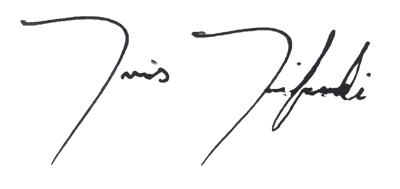About the Owner

Travis Tripodi
Owner and Primary Consultant
Several years ago, I heard the quote “Quality is the building into an object of truth” while listening to a podcast, and something about it stuck in my head. I re-listened to that section of the podcast several times, wrote the quote down, and left it on my desk. I looked at the quote every day as I performed my job as supplier quality engineer and manager, trying to integrate the concept into my daily work. Eventually, after it became clear that most managers do not have an appreciation for philosophizing employees, I quit my full time job to focus on how to better communicate my quality philosophy to the industry. Shortly after, I started my own consulting company, where this quote would help me frame my mission.
I have always been drawn to quality, in particular supplier quality, as the area where the quality system and business operations seem to work together with the least amount of friction. It was always a point of frustration for me that the organizations I worked for, and with, seemed to view Quality as an afterthought, layering their quality systems on top of their business processes in order to meet regulatory obligations. This is a common problem, and there are a lot of quality consultants out there that understand it. However, the problem seems to persist, and there are more organizations popping up every day that are making the same mistake. I was interested, not just in what the problem is, but why. So, I began an investigation in an attempt to identify the root cause. My findings were the following: the effectiveness of a quality system depends substantively on the leadership teams having an appreciation of Quality and its value to business operations and there is a significant knowledge deficiency on these teams regarding exactly what Quality is. In an attempt to understand exactly what Quality is, I have spent the last several years conducting an independent study, focusing on this history of quality, through a lens of philosophy, psychology, and economics. My study is ongoing, but I believe I have an understanding of the concept that, if it can be communicated to decision-makers, will serve to reduce the friction between quality and business operations that has been accepted as inevitable throughout the industry. Communicating what Quality is to decision-makers is the primary purpose of Tripodi Quality Consulting.
The second purpose of Tripodi Quality Consulting is to expand the scope of Quality by infusing Quality thinking into all aspects of the business. As previously stated, a clear understanding of what Quality is by the leadership team is the first step, but understanding is not enough. They must also decide to adopt responsibility for Quality, as nothing in a business is outside of the leadership team's control. Conventional quality thinking is focused on management (not leadership), operations, and engineering. Most quality professionals will claim that anything outside those areas is outside the scope of their responsibility. This includes leadership, but it also includes two other key areas that tend to be closely monitored and controlled by the leadership team: Human Resources and Finance. I believe it is impossible to truly develop a Quality culture without integrating Quality thinking into these areas as well.
Throughout my investigation into Quality, I have come to understand two truths:
(1) It is human nature to prioritize immediate gratification and that one's ability to delay gratification is directly correlated to their ability to create and operate in a Quality culture. The ability to delay gratification is also directly correlated to the trait Conscientiousness. Most businesses do not even bother to assess candidates (or existing employees) personalities, but the ones that do often use tools that do not consider this key trait. A business cannot expect Quality outcomes without Quality people, so I am focused on integrating Quality into Human Resources.
(2) We live in an abstract economy (best thought of as one operating with an inflationary monetary system) and that abstraction creates an environment where even those who are capable of delayed gratification struggle to make Quality decisions. Decision-makers often cannot determine which way is up and which way is down. This results in misallocation of resources (or malinvestment) and decapitalization (or overconsumption). This inhibits a business's ability to achieve long-term profitability (i.e., Quality). A business cannot expect Quality outcomes without finding a way to de-abstract their economic decisions, so I am focused on integrating Quality into Finance, as well.
At Tripodi Quality Consulting, we are focused on Quality in all areas of the business, but what sets us apart is our dedication to expanding the scope of responsibility of Quality and integrating Quality thinking into Leadership, Human Resources, and Finance.
Sincerely,
